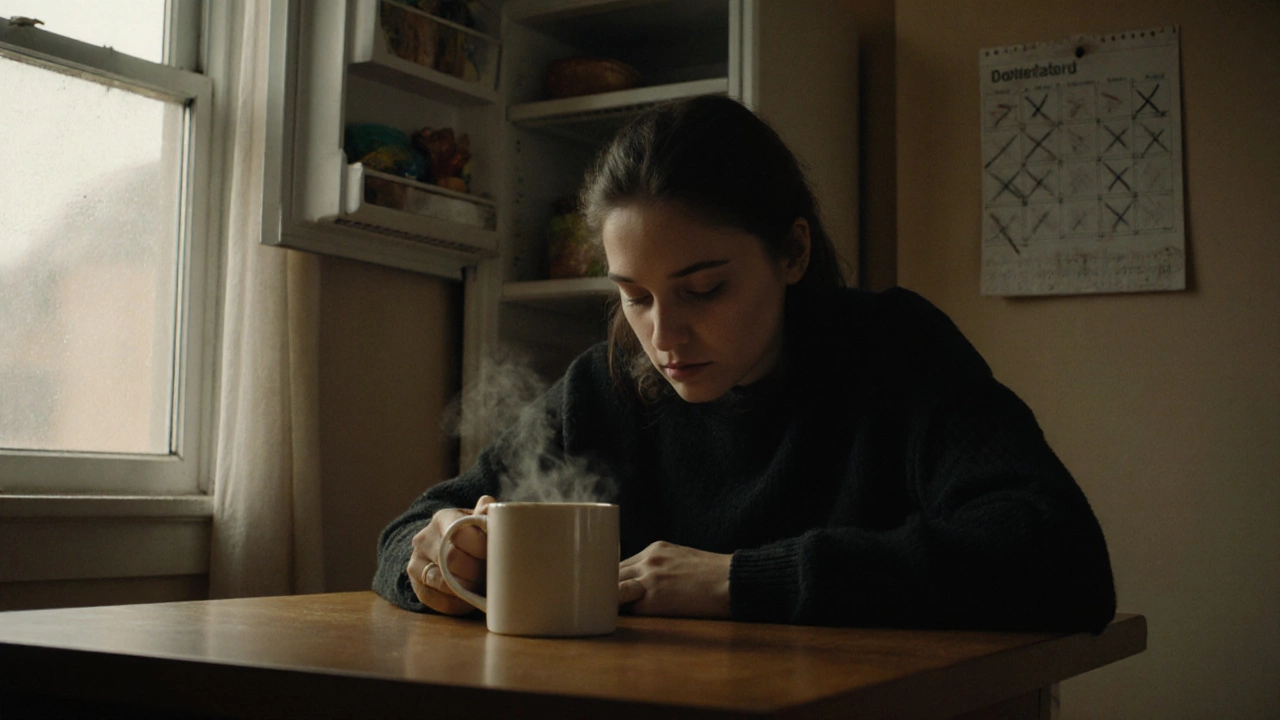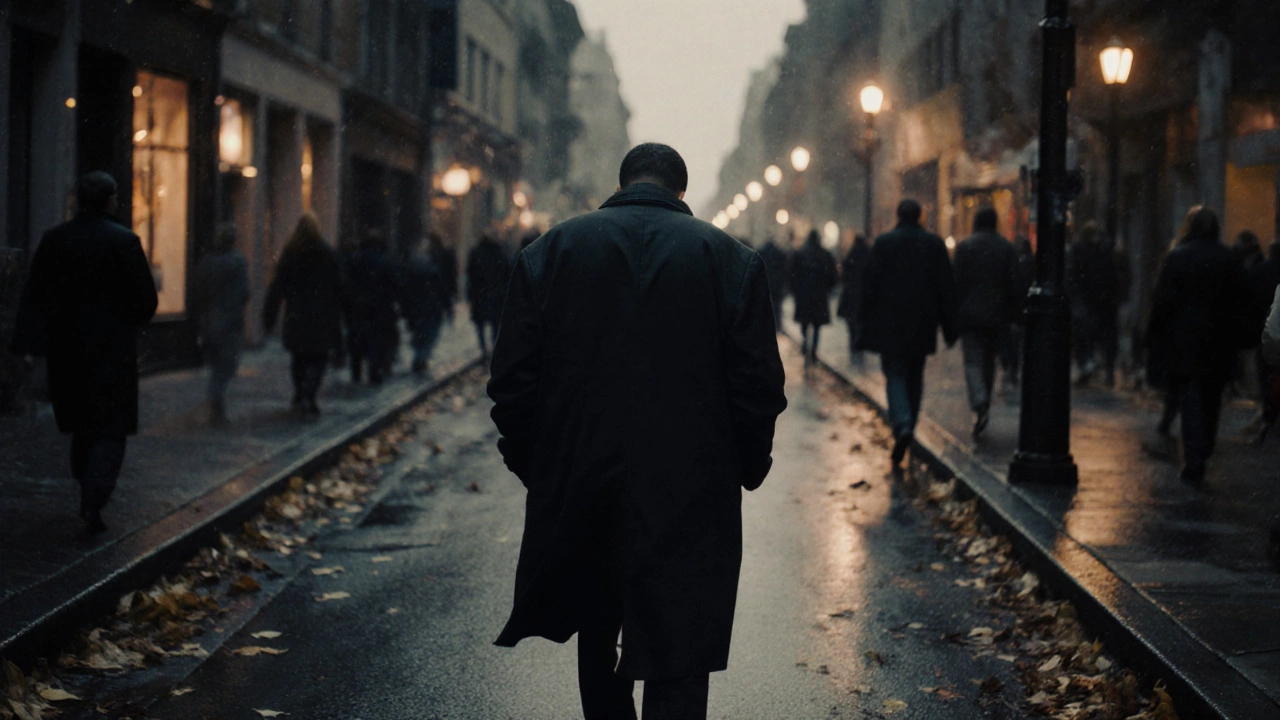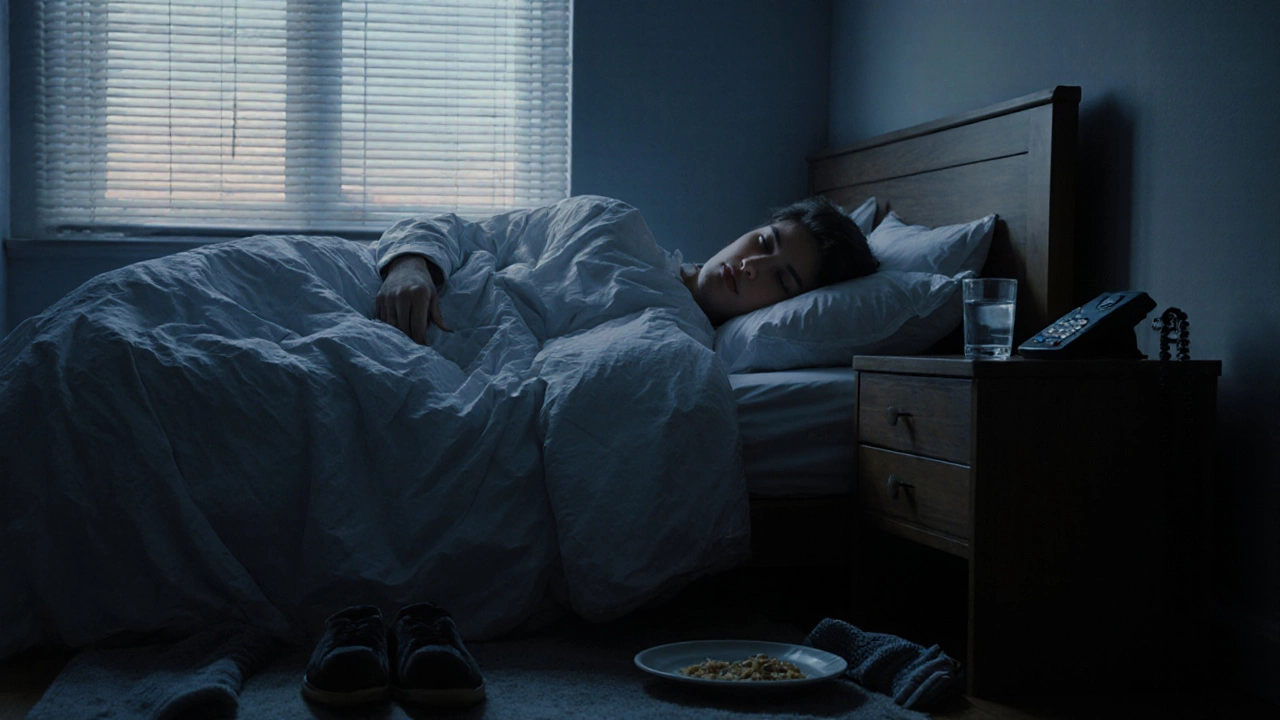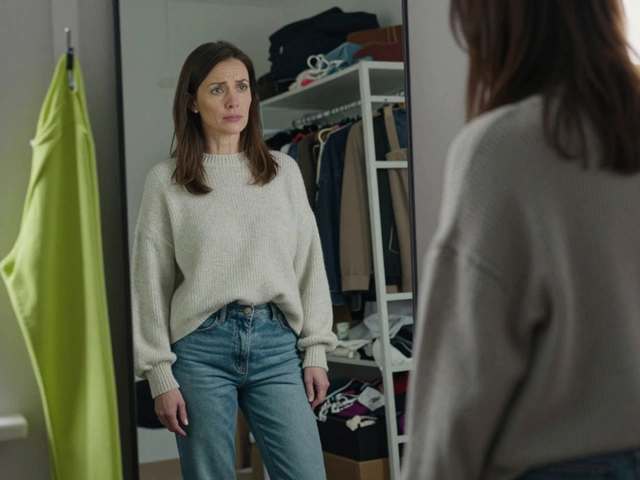Most people think a mental breakdown happens suddenly - like a light switch flipping off. But it doesn’t. It creeps in. Quietly. Slowly. By the time you realize something’s wrong, you’re already deep in it. The first stage isn’t crying in the shower or screaming at your boss. It’s quieter than that. It’s when you stop noticing you’re tired.
You’re Not Lazy - You’re Exhausted
It starts with sleep. Not insomnia, but that hollow kind of rest where you sleep seven hours but wake up like you slept two. Your body’s been running on fumes for weeks, maybe months. You tell yourself it’s just a busy season. Work is hectic. Kids are demanding. Life is just hard right now.
But here’s the thing: your body doesn’t lie. When you’re constantly overriding your need to rest, your nervous system starts to shut down non-essential functions. That’s when you stop feeling hungry. When you forget to drink water. When you skip showers because getting out of bed feels like climbing a mountain. This isn’t laziness. This is your brain begging for help.
The Emotional Numbness That Sneaks In
One of the earliest and most dangerous signs is emotional detachment. You used to cry at commercials. Now you watch them and feel nothing. Your partner says, “I love you,” and you nod. You don’t feel it. You don’t feel anything. Not joy. Not anger. Not sadness. Just… flat.
This isn’t being strong. It’s your mind protecting itself. When stress piles up too high for too long, your brain pulls the plug on emotions to avoid drowning. It’s like hitting pause on your feelings so you can keep going. But pause doesn’t mean reset. It means you’re running on backup power - and backup power runs out fast.
Physical Symptoms No One Talks About
People expect mental breakdowns to show up as panic attacks or depression. But the first signs are often physical. You get headaches that won’t go away. Your stomach churns after every meal. You feel like you have the flu - no fever, no cough, just constant heaviness. Your muscles ache even when you haven’t moved all day.
A 2023 study from the American Psychological Association found that 68% of people reporting early-stage mental exhaustion described physical symptoms before they recognized emotional distress. Your body speaks first. You just have to learn to listen.

You Start Avoiding Everything
You used to love coffee with friends. Now you cancel plans. You used to scroll through memes. Now you stare at your phone for an hour without clicking anything. You avoid calls. You delete group chats. You don’t answer texts because replying feels like running a marathon.
This isn’t being antisocial. It’s your brain trying to conserve energy. Every interaction - even a quick “hey how are you?” - takes mental fuel you don’t have. You’re not rejecting people. You’re running on empty. And the only way to survive is to shrink your world until it fits inside your limits.
Things That Used to Bother You Don’t Anymore
Remember how you used to get mad when someone left dishes in the sink? Or how you’d stress about a messy room? Now you don’t care. Not because you’ve become zen. Because you’ve given up.
When your mental reserves are low, your brain stops caring about small stressors. It’s not peace. It’s resignation. You stop fighting because you’re too tired to fight. That’s not maturity. That’s depletion.
The Inner Voice Changes
That little voice inside your head that used to say, “You’ve got this”? Now it says, “What’s the point?”
Self-talk shifts dramatically in the first stage. Motivation dies. Curiosity vanishes. Even simple tasks - like making your bed or replying to an email - feel overwhelming. You don’t feel guilty for not doing them. You just feel… empty. Like you’ve already lost, even before the battle started.

Why This Stage Is So Dangerous
The first stage of a mental breakdown is dangerous because it doesn’t look like a breakdown. To others, you’re just “a little off.” To you, you’re just tired. You tell yourself you’ll bounce back. You’ll sleep more. You’ll take a weekend off. You’ll get through it.
But here’s what no one tells you: recovery doesn’t happen by accident. You don’t heal by waiting. You heal by acting - even when you feel like you can’t.
What to Do When You Recognize These Signs
Step one: Stop blaming yourself. This isn’t weakness. It’s biology. Your nervous system is signaling overload. That’s not your fault.
Step two: Cut one thing. Not everything. Just one. Cancel that meeting you don’t need to attend. Skip the family dinner. Don’t reply to that email. Say no to something that drains you. Protect your energy like it’s the last battery in your phone.
Step three: Move your body - even a little. Walk around the block. Stretch for five minutes. Dance to one song. Movement doesn’t fix everything, but it tells your nervous system: “You’re still alive. You’re still here.”
Step four: Talk to someone who doesn’t try to fix you. Not your boss. Not your mom. Someone who just listens. A therapist, a friend, a support group. You don’t need advice. You need to be heard.
This Isn’t the End - It’s the Wake-Up Call
The first stage isn’t a failure. It’s feedback. Your mind is telling you: “Something has to change.” Most people ignore it. Those who listen? They don’t always get better overnight. But they stop spiraling. They start rebuilding.
You don’t need to fix everything today. You just need to stop pretending you’re okay when you’re not. That’s the first real step back - not from breakdown, but from denial.










